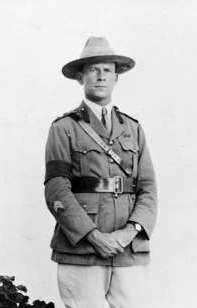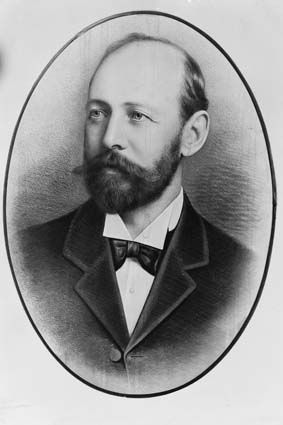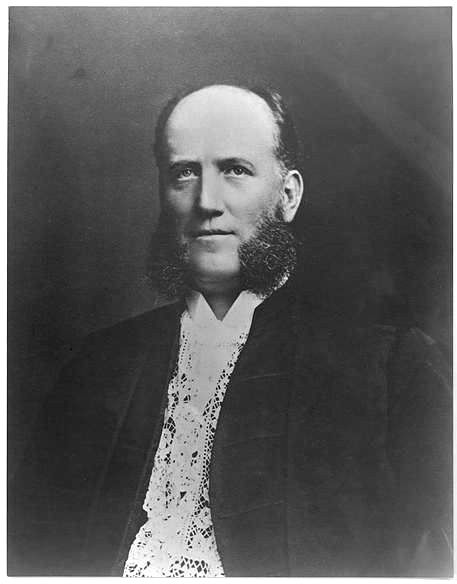|
Sir William McKell
Sir William John McKell (26 September 1891 – 11 January 1985) was an Australian politician who served as the 12th Governor-General of Australia, in office from 1947 to 1953. He had previously been Premier of New South Wales from 1941 to 1947, as leader of the Labor Party. McKell was born in the small town of Pambula, New South Wales, but grew up in Sydney. He left school at thirteen, training as a boilermaker at Mort's Dock. McKell soon became involved with the union movement, and after a brief period on the railways began working full-time as a union secretary. He sided with the anti-conscriptionists during the Labor Party split of 1916, and at the 1917 state election defeated James McGowen, a former Labor premier who had been expelled from the party. In 1920, aged 29, McKell was Minister of Justice under John Storey. He also served as a minister under John Dooley and Jack Lang. During the Labor Party's internal tensions in the 1930s, McKell came to be seen as a com ... [...More Info...] [...Related Items...] OR: [Wikipedia] [Google] [Baidu] |
The Right Honourable
''The Right Honourable'' ( abbreviation: ''Rt Hon.'' or variations) is an honorific style traditionally applied to certain persons and collective bodies in the United Kingdom, the former British Empire and the Commonwealth of Nations. The term is predominantly used today as a style associated with the holding of certain senior public offices in the United Kingdom, Canada, New Zealand, and to a lesser extent, Australia. ''Right'' in this context is an adverb meaning 'very' or 'fully'. Grammatically, ''The Right Honourable'' is an adjectival phrase which gives information about a person. As such, it is not considered correct to apply it in direct address, nor to use it on its own as a title in place of a name; but rather it is used in the third person along with a name or noun to be modified. ''Right'' may be abbreviated to ''Rt'', and ''Honourable'' to ''Hon.'', or both. ''The'' is sometimes dropped in written abbreviated form, but is always pronounced. Countries with common or ... [...More Info...] [...Related Items...] OR: [Wikipedia] [Google] [Baidu] |
Jack Baddeley
John Marcus Baddeley (20 November 1881 – 1 July 1953) was an Australian politician and member of the New South Wales Legislative Assembly from 25 March 1922 to 8 September 1949. Early life Baddeley was born in Burslem, Staffordshire, England and migrated to Australia with his family at the age of two. He was educated at Merewether public school, but left at eleven to do odd jobs in the Glebe colliery near Merewether and then worked as a coal miner. in 1902 he married Harriet Churchill and they went on to have two sons and three daughters. He moved to Cessnock in 1908 to work at Neath Colliery and later at Aberdare Extended Colliery. He became a cricketer, first-grade footballer and militant socialist trade union leader. He was a councillor of Cessnock Shire from January until October 1914 and was the first president of the Australian Coal and Shale Employees' Federation from 1915 until 1922. Political career Baddeley was the Labor Party member for Newcastle from 1922 to 19 ... [...More Info...] [...Related Items...] OR: [Wikipedia] [Google] [Baidu] |
Daniel Levy (politician)
Sir Daniel Levy (30 November 1872 – 20 May 1937) was an Australian politician. Early life He was born in London to tailor Joseph Levy and Esther, ''née'' Cohen. He arrived in Sydney in 1880 and attended Crown Street Superior School, Sydney Grammar School and the University of Sydney, graduating with a first in Bachelor of Arts (Honours) in 1893 and a Bachelor of Law in 1895, in which year he was called to the Bar. In 1902 he was admitted as a solicitor. Levy was active in Jewish affairs and was co-editor of the ''Australasian Hebrew'' newspaper in 1896 with Percy J. Marks. Political career He entered the New South Wales Legislative Assembly in 1901 as the Liberal member for Sydney-Fitzroy, transferring to Darlinghurst in 1904. He would represent Sydney for the period of proportional representation from 1920 to 1927, Paddington from 1927 to 1930, and Woollahra thereafter. In 1919 he was elected Speaker of the Legislative Assembly. The Labor party had a narrow victory ... [...More Info...] [...Related Items...] OR: [Wikipedia] [Google] [Baidu] |
Joe Lamaro
Joseph Lamaro (27 July 1895 – 22 May 1951) was an Australian politician. Born in Redfern to shopkeeper Deico Lamaro and Maria Giuseppa Taranto, Italian migrants, he attended St Joseph's School in Newtown and St Patrick's College in Goulburn before studying at the University of Sydney, receiving a Bachelor of Arts in 1915 and a Bachelor of Law in 1922. He served in the Australian Imperial Force's 18th Battalion from 1916 to 1917 in the signals unit, seeing action at Ypres and the Somme. He was called to the Bar in 1922 and a member of the first Australian Board of Control from 1924 to 1927. In 1927 he was elected to the New South Wales Legislative Assembly as the Labor member for Enmore, shifting to Petersham in 1930 and Leichhardt in 1932. Lamaro served as Minister of Justice from 1930 to 1931 and Attorney-General from 1931 to 1932. In 1934 he resigned his seat to contest the federal seat of Watson, but he was unsuccessful and returned to law as a solicitor. He worked ... [...More Info...] [...Related Items...] OR: [Wikipedia] [Google] [Baidu] |
Minister Of Justice (New South Wales)
The Minister of Justice, subsequently Minister for Justice, was a ministry in the administration of New South Wales, established in 1880 in the third ministry of Henry Parkes and abolished in 2017. The position supports the Attorney General and was sometimes, although not always, held concurrently with that office. Role and responsibilities Prior to 1880 the Minister of Justice and Public Instruction was responsible for the administration of the courts, sheriff and coroner, as well as the Council of Education, orphan schools, the public library, Australian Museum and observatory. In 1880 the ministry was split into the Minister of Justice and the Minister of Public Instruction following the passage of the ''Public Instruction Act of 1880'' which required a minister to assume the responsibilities of the former Council of Education. The minister also assumed responsibility for prisons which had previously been the responsibility of the Colonial Secretary, however the Colonia ... [...More Info...] [...Related Items...] OR: [Wikipedia] [Google] [Baidu] |
Michael Bruxner
Lieutenant Colonel Sir Michael Frederick Bruxner (25 March 1882 – 28 March 1970) was an Australian politician and soldier, serving for many years as leader of the Country Party (and its predecessors) in New South Wales. Born in the north of the state, Bruxner was educated at The Armidale School and started studies at University of Sydney but later dropped out to take up employment as a grazier and station agent in Tenterfield. After serving in the Citizen Military Forces from 1911, Bruxner enlisted into the Australian Light Horse upon the outbreak of the First World War in 1914. Serving with distinction in Gallipoli, Egypt and Palestine, he was promoted to lieutenant colonel and awarded the Distinguished Service Order. Returning to Australia in 1919, Bruxner sold his business and joined the Progressive Party, being elected to the Parliament of New South Wales for Northern Tablelands at the 1920 election. Bruxner came to political prominence when he led the rural "True Blue ... [...More Info...] [...Related Items...] OR: [Wikipedia] [Google] [Baidu] |
Minister For Local Government (New South Wales)
The Minister for Local Government is a minister in the New South Wales Government and has responsibilities which includes all local government areas and related legislation in New South Wales, the most primary of which is the ''Local Government Act 1993''. The minister administers the portfolio through the Planning and Environment cluster, in particular through the Department of Planning and Environment, the Office of Local Government, and a range of other government agencies. The Minister for Local Government is Wendy Tuckerman, since 21 December 2021. The minister works within the cluster, and assists the senior cluster minister, the Minister for Planning, currently Anthony Roberts, also since 21 December 2021. Ultimately both ministers are responsible to the Parliament of New South Wales. Administrative history With the significant expansion of Local Government areas in the early 1900s the first formal government body with the specific responsibility for Local Government ... [...More Info...] [...Related Items...] OR: [Wikipedia] [Google] [Baidu] |
Australian Labor Party (New South Wales Branch)
The Australian Labor Party (New South Wales Branch), also known as NSW Labor, is the New South Wales branch of the Australian Labor Party. The parliamentary leader is elected from and by the members of the party caucus, comprising all party members in the Legislative Assembly and Legislative Council. The party factions have a strong influence on the election of the leader. The leader's position is dependent on the continuing support of the caucus (and party factions) and the leader may be deposed by failing to win a vote of confidence of parliamentary members. By convention, the premier sits in the Legislative Assembly, and is the leader of the party controlling a majority in that house. The party leader also typically is a member of the Assembly, though this is not a strict party constitutional requirement. Barrie Unsworth, for example, was elected party leader while a member of the Legislative Council. He then transferred to the Assembly by winning a seat at a by-election. W ... [...More Info...] [...Related Items...] OR: [Wikipedia] [Google] [Baidu] |
Jack Lang (Australian Politician)
John Thomas Lang (21 December 1876 – 27 September 1975), usually referred to as J. T. Lang during his career and familiarly known as "Jack" and nicknamed "The Big Fella", was an Australian politician, mainly for the New South Wales Branch of the Labor Party. He twice served as the 23rd Premier of New South Wales from 1925 to 1927 and again from 1930 to 1932. He was dismissed by the Governor of New South Wales, Sir Philip Game, at the climax of the 1932 constitutional crisis and resoundingly lost the resulting election and subsequent elections as Leader of the Opposition. He later formed Lang Labor that contested federal and state elections and was briefly a member of the Australian House of Representatives. Early life John Thomas Lang was born on 21 December 1876 on George Street, Sydney, close to the present site of The Metro Theatre (between Bathurst and Liverpool Streets). He was the third son (and sixth of ten children) of James Henry Lang, a watchmaker born in Edin ... [...More Info...] [...Related Items...] OR: [Wikipedia] [Google] [Baidu] |
1941 New South Wales State Election
The 1941 New South Wales state election was held on 10 May 1941. This election was for all of the 90 seats in the 33rd New South Wales Legislative Assembly and was conducted in single-member constituencies with compulsory preferential voting. Background The replacement of Jack Lang by William McKell as leader of the Labor Party in 1939 reunited and rejuvenated the party. A small number of Labor party members continued to support the far-left-wing State Labor Party (Hughes-Evans) but that had minimal impact on the election results. The Labor Party moved away from Lang's populist, inflationary policies, which were seen as extremist by many voters in the middle ground of the political spectrum. McKell also improved the party's standing in rural electorates by personally selecting well-known local candidates. By contrast, the internal party divisions and lack of policy direction affecting the United Australia Party (UAP) had resulted in Alexander Mair replacing Bertram Stevens a ... [...More Info...] [...Related Items...] OR: [Wikipedia] [Google] [Baidu] |
Leader Of The Opposition (New South Wales)
The Leader of the Opposition is a title held by the leader of the second-largest party in the New South Wales Legislative Assembly, the lower house of the Parliament of New South Wales. There is also a Leader of the Opposition in the Legislative Council. The leader acts as the public face of the opposition, leading the opposition on the floor of parliament. They act as a chief critic of the government and ultimately attempt to portray the opposition as a feasible alternate government. They are also given certain additional rights under parliamentary standing orders, such as extended time limits for speeches. The current leader of the opposition is Chris Minns, who was 2021 Australian Labor Party (New South Wales Branch) leadership election, elected on 4 June 2021. Penny Sharpe serves as leader of the opposition in the Legislative Council. List of leaders of the opposition in New South Wales since 1901 ; Political parties Leaders of the opposition in the Legislative ... [...More Info...] [...Related Items...] OR: [Wikipedia] [Google] [Baidu] |
Athol Richardson
Athol Railton Richardson (15 May 1897 – 22 May 1982) was an Australian politician and judge. Richardson represented the Electoral district of Ashfield for the United Australia Party and the Liberal Party from 11 May 1935 until 5 February 1952. Early life Richardson was born to parents Stephen Arthur Richardson, a Salvation Army officer, and mother Elizabeth Sarah Urquhart in Newcastle, New South Wales. Richardson jnr served in World War I in the 2nd and 4th squadrons of the Australian Flying Corps in France from 1917 till 1919. He married Isabel McCrea Watson on 23 February 1928 and had one daughter and one son. Political career Richardson entered politics by contesting and winning the Electoral district of Ashfield for the United Australia Party at the 1935 election. He was subsequently re-elected to the seat of Ashfield at the 1938, 1941 and 1944 elections. He resigned to unsuccessfully contest the federal seat of Parkes in 1946. He regained Ashfield at the subsequent by ... [...More Info...] [...Related Items...] OR: [Wikipedia] [Google] [Baidu] |
_(cropped).jpg)



.jpg)

